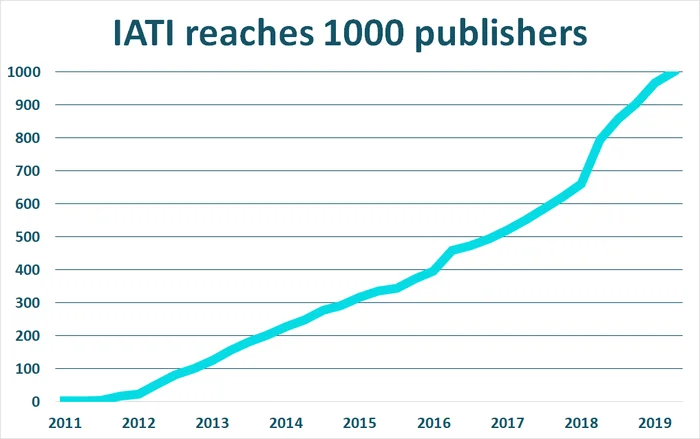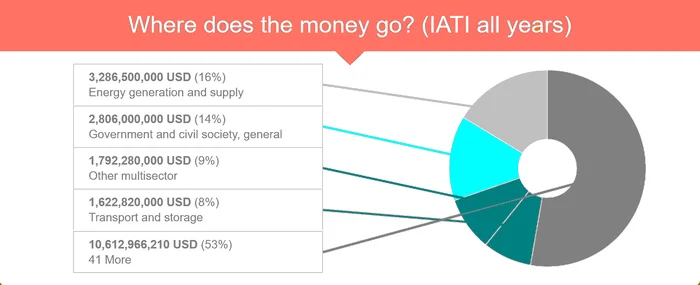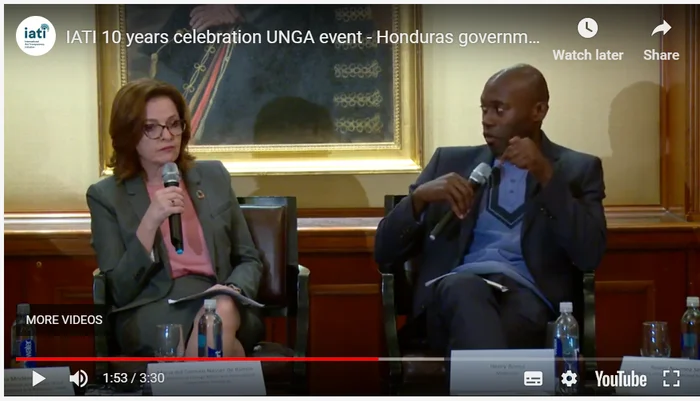1000 organisations publish development and humanitarian spending to IATI
The International Aid Transparency Initiative (IATI) has reached a milestone of 1000 organisations publishing their spending using the IATI Standard.
Since the UK government became the first to publish their aid in 2011, IATI has rapidly grown into a widely recognised global standard for capturing data on development and humanitarian resources. Today 1000 governments, multilateral and non-governmental organisations, foundations, private sector and development finance institutions have published their data transparently.

This milestone marks tremendous progress by IATI in advancing the transparency agenda within the international development and humanitarian communities. Launched just over a decade ago, IATI has been endorsed in major global development and humanitarian agreements (Busan Partnership and Grand Bargain Agreement) and three governments (UK, Netherlands and Belgium) now mandate their aid grantees to publish IATI data.
This milestone marks tremendous progress by IATI in advancing the transparency agenda within the international development and humanitarian communities.
This momentum has helped to reveal data on over one million development and humanitarian activities, from food assistance in emergencies, to measures addressing climate change. Now the finances, locations, results and other key information is available for anyone in the world to access. These kinds of data are crucial for improving the planning, coordination and accountability of resources used to help the world's poorest and most vulnerable.

View all data using IATI's search platform d-portal.org
IATI data driving decisions and accountability
In 2012, the Democratic Republic of the Congo was the first recipient government to start using IATI data. Since then there has been a steady increase in governments integrating IATI data into their financial management systems.
As a result, partner countries from Honduras to Madagascar have identified billions of dollars of assistance and hundreds of external organisations operating in their countries that were previously unknown to the governments. The additional data has supported decision-making, with examples from the Government of Liberia which consulted IATI data to support coordination efforts during the Ebola virus disease outbreak of 2014, and the Federal Government of Somalia, which used IATI data to inform the country's National Development Plan (2017–2019).

As a result partner countries from Honduras to Madagascar have identified billions of dollars of assistance and hundreds of external organisations operating in their countries that were previously unknown to the governments.
Along with partner country governments, other important stakeholders have benefited from using IATI data. Civil society organisations such as Publish What You Fund use IATI to campaign for greater transparency, and many donors and multilateral organisations have created online aid portals powered by IATI data to provide information to the public about where funds are used.
Going forward, there is still much to do. From increasing awareness to improving tools, IATI remains committed to promoting widespread and systematic use of IATI data to contribute to achieving sustainable development.
IATI’s next chapter: focusing on data quality
Having achieved a critical mass of publishers, IATI is keen to focus now on improving the quality of data published and is considering how best to support organisations to update their data regularly, publish fewer errors, use the most recent version of the IATI Standard and provide data across more fields, such as geolocation and results.
IATI is determined to achieve significant improvement in the quality of IATI data to ensure it is useable and useful for all those working to drive the effective use of resources to achieve sustainable development.
This shift in focus will promote the best practices of publishers providing good quality data and drive improvements by providing support and incentives to publishers to deliver better data. IATI will continue working collaboratively with IATI’s diverse community of publishers, users and technical experts to meet these objectives.
This next chapter begins with the launch of a new IATI Validator this summer so publishers can automatically identify areas for improvement in their data, and ensuring that only valid data is used in IATI’s new Datastore.
IATI is determined to achieve significant improvement in the quality of IATI data to ensure it is useable and useful for all those working to drive the effective use of resources to achieve sustainable development.